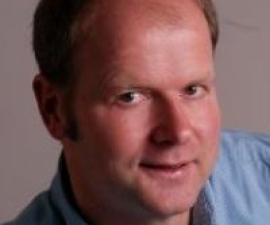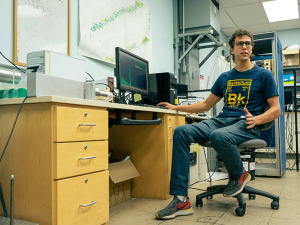

Research Bio
Kai Vetter’s research main research interests are in the development and demonstration of new concepts and technologies in radiation detection to address some of the outstanding challenges in fundamental sciences, nuclear security and safety, and health. He leads and oversees a wide range of developments in radiation detection and imaging and the fusion of nuclear with complementary data that are relevant for example in the mapping of contamination in Fukushima or the verification of ion-cancer therapy. Professor Vetter is also Faculty Senior Scientist and Head of the Applied Nuclear Physics program at the Lawrence Berkeley National Laboratory. This program entails almost all aspects of radiation detection and imaging including the detector fabrication, readout, integration and signal processing as well as data sciences.
One of the recent highlights is the development of the concept of 3D Scene Data Fusion which allows to visualize nuclear radiation embedded in scenes in 3D in real time. This can be done for a wide range of radiation detection and imaging systems which deployed in hand-portable formats or on manned and unmanned aerial and ground vehicles such as drones and robots. This concept can also play an important role in the communication about nuclear radiation with the pubic.
In addition to his research and teaching activities, Professor Vetter heads the recently established Institute for Resilient Communities. This institute is dedicated to providing tools that enhance resilience in communities locally and globally. The goal is to minimize the impact associated with sudden or long-term changes induced by human actions or nature. To achieve this goal, it combines science, technology, education, and outreach and involves academic and educational institutions as well as communities in an international, multi-disciplinary, and multi-cultural context.
The Institute for Resilient Communities provides a framework for research, education, and community involvement to minimize the physical and psychological impact of future disruptive events and developments. It provides a forum for dialogue among researchers, educators, decision makers, and communities locally and globally. As an example, the 2011 events at the Fukushima Daiichi Nuclear Power Plant in Japan highlighted the unmet need to enhance resilience to radiological and nuclear accidents. The incident and associated large releases of radioactive materials had and continue to have an enormous societal and economic impact on Japan and globally. Although no casualties and health effects have been and likely will be attributable directly to radiation, these events have manifold and substantial impact on local communities and have provoked ongoing anxiety and concerns around the world.
Professor Vetter authored and co-authored more than 200 publications in peer-reviewed journals and is fellow of the American Physical Society. He received Presidential Citations from the American Nuclear Society twice, for his engagement in Fukushima through measurements and enhancing community resilience.
Research Expertise and Interest
nuclear physics, radiation detection, nuclear instrumentation, nuclear measurements, multi-sensor systems and data fusion, radiological resilience

